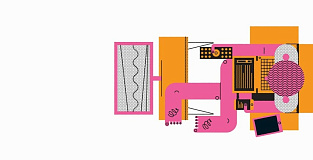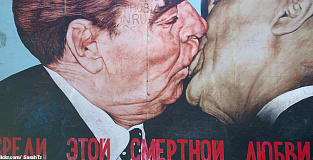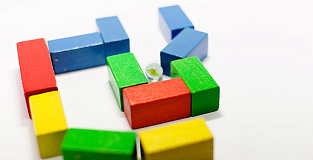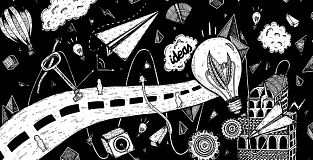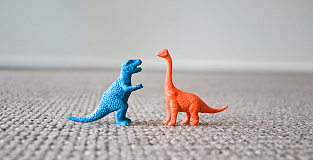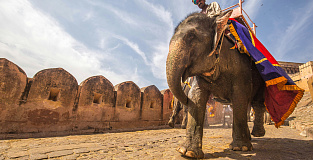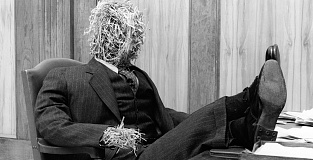
читайте также
Putin
I am in Belorussia watching the CNN program on “Czar Putin,” which is arguing that Putin is destroying the Russian budding democracy. If I had watched the program from my bed in Santa Barbara, I believe I would have accepted that criticism of Putin, but watching it from Minsk, Belorussia, I had a different experience.
Why are people surprised at what Putin is doing?
Change is not linear. It is always two steps forward, one step back. Even in dieting that is true. There is always a relapse. No change advances forward in a linear, straight line. And that is true especially for Russia, which has never, ever, had experience with democracy. The country has always moved from one dictatorship to another.
In this century, Russia has gone through remarkable changes. Don’t people realize what it means to transform to a market economy from central planning?
When we try to decentralize a company, much less a country, there are enormous reactions to and problems with cultural change. And here we are talking about a country – one of the largest on earth – which moved from government-owned to privately owned industry, from Communism to capitalism. This is not just a change of ownership. It is a change of an entire values system. It could not make those changes without some relapses. That is normal.
Also, Russia has traditionally not only accepted authority, it has glorified authority. That is how Stalin survived in power for so long. Those who went against this culture, like Yeltzin, were and are despised. Yeltzin drank in public and danced like a circus clown. He broke apart the Soviet Union and is considered to be the leader who destroyed Russia’s former glory. Putin, on the other hand, is perceived by many as the person who is bringing pride and self-respect back to Russia. The accusation that Russia cannot have democracy without a robust opposition party is not relevant in Russia’s present culture. An opposition party that criticizes Russian policies would be perceived as trying to weaken Russia. We are expecting Russia to have an adversary democracy, when in their current stage of cultural evolution, with their long history of glorifying authority, adversary relations naturally feel inauthentic to them.
The Russian Jews who immigrated to Israel between the 1970s and the 1990s experienced what sociologists called “freedom shock.” They could not believe that people could criticize, make fun of, and put down Israel’s elected leaders. To them, it seemed like spitting at your own mother.
We must realize that political systems do not just comprise voting regulations. They have a cultural component, and what is culturally acceptable to us can be totally alien to another country.
Another point: American newspapers criticize Putin for giving us a hard time about Iran and Kosovo. How strange! What did we do in 1962 when the Russians were going to put missiles in Cuba? We were ready to go to war. And now, Bush is putting missiles on the immediate borders of Russia, and yet we expect Putin to accept that lying down. How arrogant that is.
I am not defending Putin’s actions here. Not at all. But what he is doing was to be expected. If it were not Putin, it would have been someone else taking the same actions. Putin is helping to enact a scenario that the country needs to play out; he is responding to Russian society’s need to regain its footing, because the change it experienced was enormously disruptive.
The changes in Russia are immense, and Russia needs to stabilize before further democratization can occur. And when it does, this democratization will have to be internally driven and not promoted by the United States – because otherwise the change will be perceived as being driven by foreign interests. First, Russia must regain the pride it lost with the breakdown of the Soviet Union. Then, it must learn to control the vulgar capitalism that has become a run-away train. (You see this in Moscow: people are begging on the street, while simultaneously an exhibition or convention is being held exclusively for millionaires, endorsing the worst kind of conspicuous consumption. Such a disparity of classes is quite alien to the Communist ideology, which people have not forgotten.)
As in therapy, the changes have to come from the inside. They cannot be driven by someone else; that would only retard the evolution that will occur anyway, in time.
Odessa
As expected, I could not sleep. I was hungry. I opened the mini-bar: oops, there were condoms on the shelf.
I do not remember ever seeing condoms in American mini-bars. Is that because there is no casual sex in American hotels, or is it because religion plays such a restrictive role here? Open the drawer of any American hotel nighttable, and you will find a Bible. But condoms? God forbid.
My insight was that America is increasingly becoming a religious state, and the claim that all religions are equally welcome does not ring true. Some are more equal than others. Would Lieberman have dared to campaign as a Jewish candidate, the way Huckabee campaigns as a Christian candidate? And it looks possible that Romney, a Mormon, may lose votes because some voters believe the Church of Latter Day Saints is not a Christian religion.
Where is this taking us? When will I feel unwelcome in this country, or feel like a second-class citizen because I am not Christian? I am told that in the United States, there is separation of state and religion. What that means is that no one can be denied any of their civil right rights because of their religion. But in fact, Romney might be denied the Presidency because he is a Mormon.
What is only our rhetoric, and what is our reality?
Denmark
This brings me to the meditation retreat in Denmark. I cannot elaborate very much on the experience. It is like sex: if you try to describe and explain it, it looks crude – even gory. But when experienced, it is something else. So although meditation should be experienced rather than described and explained, I would like to share with you one of the many insights I had while meditating.
In my lectures and writings, I often speak of one of the principles of success: energy is fixed, and any part of that energy that is wasted on internal destructive conflicts is not available to compete in the market place.
Energy is fixed.
Energy is fixed?
Here is a different view.
Imagine that energy is infinite. Not fixed. Infinite. It can all be available to us as long as we do not have filters and barriers to reduce its availability.
What are those barriers and filters? They comprise our own experiences and the internal “noise” between our ears, which distract us from our connection to the universe and this endless energy.
As we reduce our chatter in our heads, as we accept the Lord – if we stop usurping His powers and trying to manage our life independently of Him – the denominator of the success formula gets smaller, while the equation grows larger. We will have endless energy when the denominator is zero. That is when we and God are united. When we are one.
It might not happen in one lifetime. But this process of reducing the denominator – the chatter in one’s head – is the spiritual journey seekers take. And I have joined the crowd on this road. Happy Holidays, and enjoy your vacations. And write when you feel like it.
With all my respects to wherever you are and to whatever you believe in.
Ichak Kalderon Adizes

